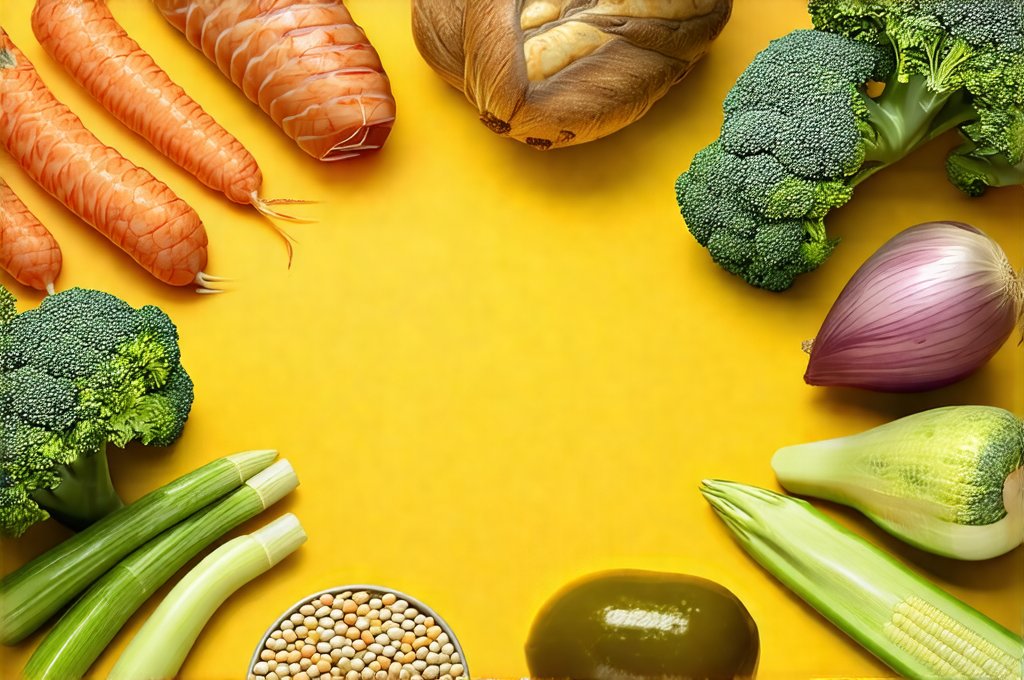Irritable Bowel Syndrome (IBS) is a chronic gastrointestinal disorder affecting millions worldwide. It’s characterized by abdominal pain, bloating, gas, diarrhea, and constipation – often occurring in unpredictable cycles. While there’s no one-size-fits-all solution for managing IBS, dietary modifications are frequently the first line of defense. Identifying foods that trigger symptoms is a highly individual process, as sensitivities vary significantly from person to person. This article will explore common food triggers, delve into why they cause issues for those with IBS, and offer practical alternatives to help you navigate a more comfortable and symptom-free life.
The frustrating part about managing an IBS diet isn’t necessarily eliminating foods, but rather understanding your personal trigger points. Many commonly enjoyed foods can exacerbate symptoms in some individuals while remaining perfectly tolerable for others. This necessitates a period of careful observation and potentially elimination diets to pinpoint which items are causing distress. It’s also important to remember that stress, sleep deprivation, and other lifestyle factors play a significant role in IBS flares; diet is one piece of the puzzle, not the entire solution. A holistic approach that addresses both physical and mental wellbeing yields the best results.
Common Food Triggers for IBS
Many foods can contribute to IBS symptoms due to their impact on gut motility, fermentation potential, or even psychological associations. FODMAPs (Fermentable Oligosaccharides, Disaccharides, Monosaccharides, And Polyols) are a common culprit, representing short-chain carbohydrates that the small intestine struggles to absorb. When these undigested carbs reach the large intestine, they’re fermented by gut bacteria, producing gas and leading to bloating, pain, and altered bowel habits. However, FODMAPs aren’t the only offenders. Certain other foods can also directly irritate the digestive system or worsen inflammation. Understanding trigger foods is a crucial step in managing your symptoms.
Beyond FODMAPs, foods high in fat can stimulate intestinal contractions, potentially worsening diarrhea. Similarly, caffeine and alcohol can increase gut motility, leading to urgency and discomfort. Spicy foods, while enjoyable for many, can act as irritants for those with sensitive guts. Dairy products, even without lactose intolerance, can cause problems for some IBS sufferers due to their complex composition and potential impact on gut flora. Ultimately, building a personalized list of trigger foods is vital for effective management.
Identifying your individual triggers often involves an elimination diet – systematically removing suspected problem foods for a period (typically 2-6 weeks) and then reintroducing them one by one to monitor for symptoms. Keeping a detailed food diary can be immensely helpful during this process, noting everything you eat and any associated digestive issues. If probiotics are causing discomfort, consider alternatives.
Building an IBS-Friendly Diet: Focus on What You Can Eat
While identifying triggers is essential, focusing solely on restriction can feel overwhelming and lead to nutrient deficiencies. A more positive approach involves emphasizing foods that are generally well-tolerated by people with IBS and building your diet around them. Lean proteins like chicken or fish, easily digestible carbohydrates such as rice or potatoes (in moderation), and low-FODMAP fruits and vegetables form the foundation of a gut-friendly eating plan.
Prioritizing whole, unprocessed foods is always beneficial. These options tend to be less irritating and provide essential nutrients without added chemicals or artificial ingredients. Staying hydrated by drinking plenty of water throughout the day helps maintain healthy bowel function and prevents constipation. Small, frequent meals can also reduce digestive stress compared to large portions. Remember, consistency is key – adopting a sustainable dietary pattern that minimizes triggers while maximizing nutrient intake will yield long-term benefits. Being aware of foods that create gas can also help you manage your diet more effectively.
Understanding FODMAPs & Low-FODMAP Alternatives
The low-FODMAP diet has gained significant traction as an effective strategy for managing IBS symptoms. It’s important to note this isn’t necessarily a long-term dietary solution, but rather a tool to identify sensitivities and develop a personalized eating plan. The goal is to temporarily restrict high-FODMAP foods until you understand which ones are causing problems, then gradually reintroduce them to determine your individual tolerance levels.
- High-FODMAP Foods to Limit: Onions, garlic, apples, pears, wheat, rye, milk, yogurt, honey, high-fructose corn syrup, beans, lentils.
- Low-FODMAP Alternatives: Rice, oats, quinoa, potatoes, carrots, spinach, bananas (ripe but not overripe), blueberries, oranges, lactose-free dairy or almond/soy milk.
Working with a registered dietitian specializing in IBS is highly recommended to navigate the low-FODMAP diet effectively and ensure adequate nutrition during restriction. Incorrect implementation can lead to unnecessary limitations and potentially nutrient deficiencies. Consider reviewing an IBS diet for a comprehensive understanding of food choices.
The Role of Fiber in IBS Management
Fiber’s role in IBS management is surprisingly complex. While generally beneficial for digestive health, the type of fiber matters greatly. Insoluble fiber (found in wheat bran, vegetables) can exacerbate symptoms in some individuals by adding bulk to the stool and increasing intestinal motility. Soluble fiber (found in oats, barley, fruits) tends to be better tolerated as it absorbs water, softening the stool and promoting regularity.
Gradually increasing soluble fiber intake can often alleviate constipation associated with IBS, while avoiding excessive amounts of insoluble fiber may reduce bloating and abdominal discomfort. Experimenting with different types of fiber – starting small and monitoring your response – is crucial. Some individuals find relief from specific fibers like psyllium husk or partially hydrolyzed guar gum, but these should be introduced cautiously and under the guidance of a healthcare professional.
Managing Stress & Its Impact on Digestion
The gut-brain connection is undeniable, and stress significantly impacts digestive function. When you’re stressed, your body releases cortisol, which can disrupt normal bowel movements, increase inflammation, and worsen IBS symptoms. Incorporating stress management techniques into your daily routine is as important as dietary changes.
- Mindfulness & Meditation: Practicing mindfulness or meditation can help calm the nervous system and reduce anxiety.
- Regular Exercise: Physical activity releases endorphins, which have mood-boosting effects and promote healthy digestion.
- Sufficient Sleep: Aim for 7-8 hours of quality sleep each night to allow your body to recover and regulate stress hormones.
- Relaxation Techniques: Deep breathing exercises, yoga, or spending time in nature can all help reduce stress levels.
Ultimately, a holistic approach that combines dietary modifications with stress management strategies offers the most effective path to long-term IBS relief. Remember to consult with your doctor or a registered dietitian for personalized guidance and support. If you’re experiencing severe symptoms, it’s important to recognize indigestion symptoms that require medical attention. Also, be aware of how motion sickness can contribute to nausea and digestive upset. And finally, understanding food triggers is vital for a comfortable life.


















